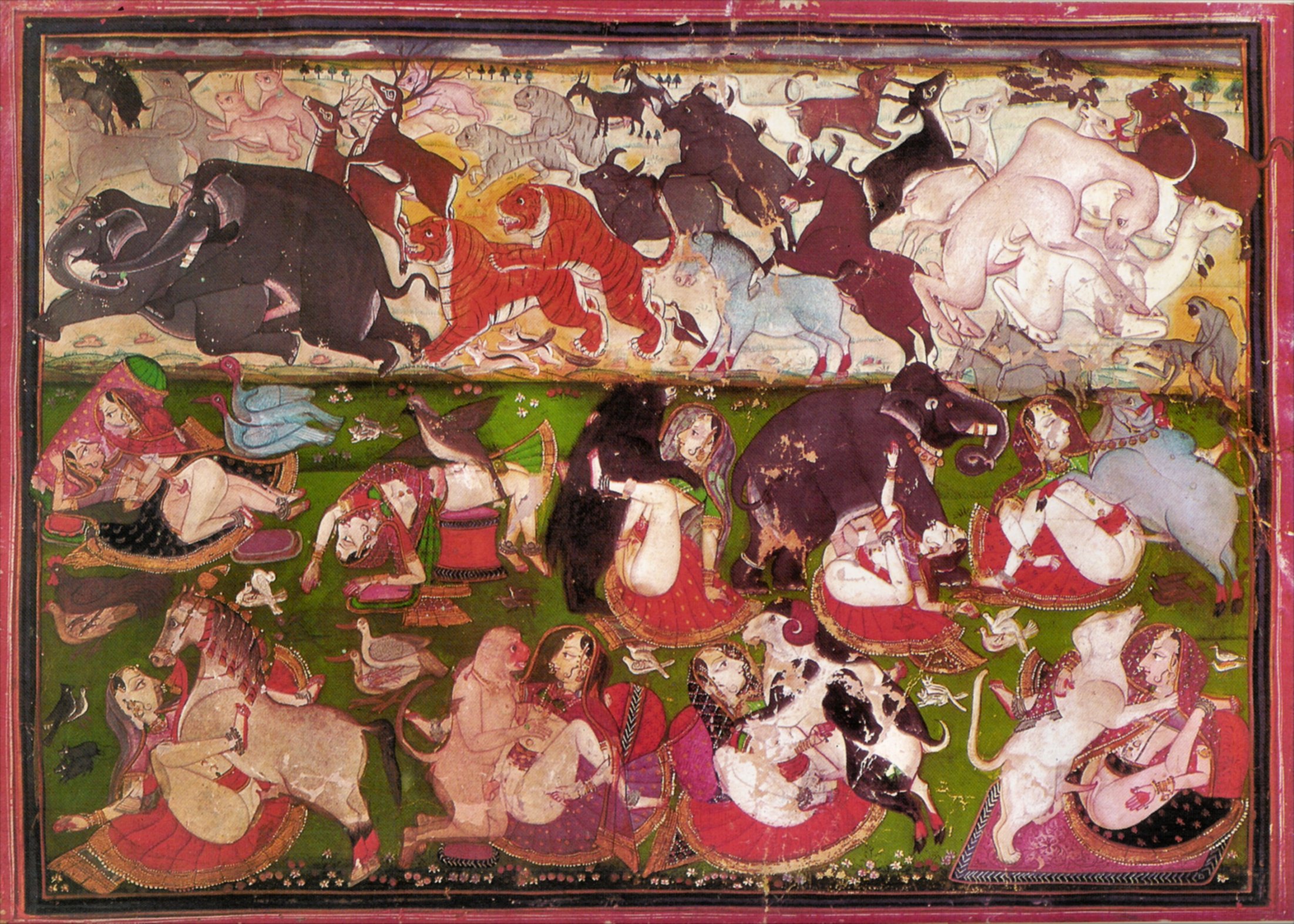By Kamran Nayeri, April 22, 2015
 |
An 18th century Indian miniature depicting women engaged in bestiality in the bottom register.
|
On Tuesday, April 21, Denmark banned bestiality (zoophilia), that is, sex with non-human animals. The law was passed because of pressure from animal rights groups and to discourage animal-sex tourism. It amended a previous law that banned sex with non-human animals that was deemed harmful to them. Dan Jorgensen, Danish Farm Minister, argued that the previous ban required proof of animal suffering during the sexual act that is hard to establish. “[T]hat is why we must give the animal the benefit of the doubt,” he said. Bestiality has been banned in Germany, Norway, Sweden and Britain. A 2011 Danish Justice Ministry report found that 17% of veterinarians who were surveyed suspected that a human had sex with an animal they treated.
The attitude towards bestiality has been to despise and ignore it as acts of sexually frustrated farmers. In fact, zoophilia is far more common and involve people from all walks of life and all over the world across history. Because it has been swept under the rug it has never become subject of civil discourse. Only recently a public discussion of bestiality has emerged in the mass media and among public officials in Western societies. Not all participants in this discussion agree on the moral standing of bestiality and what if anything should be done about it. For example, in “What It’s Is Like to Date a Horse,” New York Times Magazine, November 20, 2014, Alexa Tsoulis-Reay, provides a service to the needed public discussion by publishing an interview with a married man, who also has sex with other men, about his “love affairs” with horses, mares and stallions.
This sympathetic interview includes the interviewee defense of bestiality and why it should become legal. His arguments center on the question of sexual consent. First, he argues that in farming animal consent is not an issue in artificial insemination and semen collection which he says “are very sexual acts.” “You put your arm inside the cow, and you masturbate the bull. So obviously consent is not really the issue.”
“Second, if someone is mute and can’t write or give you a verbal response, are you allowed to have sex with them? Even if they are an adult and mentally sound? Are words the only way to get consent? I don’t know how often this comes up when a mute wants to have sex, but that’s another way of looking at it.”
Finally, he argues that he approaches his horses the same way any human approaches a non-human animal by sensing if that she/he is willing to be touched.
“No smart person does that because the dog could bite your hand. If he’s perky and happy you go in for the pet; if he’s not you don’t want to interfere with him. So for me that’s a good way to make people understand that an animal doesn’t need words to consent to being touched.”
While the interviewer does not challenge these assertions it should be obvious that domesticated animals have been bred to allow human control. Their docility makes them valuable to humans either as food or their body parts (such as fur) or for their labor or as “pets,” among many other things including bestiality. In Man’s Dominion, in biblical terms, there is no equality between humans and other animals, much less those who have been enslaved to us. Humanism has carried the germ this same idea to this day in its bourgeois and socialism forms.
The fact that billions of animals are raised and slaughtered each year for food, that include using artificial insemination and forced collection of semen, does not make bestiality moral. The entire meat industry and domestication of animals for human purpose is immoral (see my essay, “How Veganism Can Help Save the World,” June 12, 2014).
In the same vein, if there is a human person who cannot give consent to having sex, it is immoral to have sex with him/her. Consensual sex is moral percisely because it is a relationship between two free and able persons. The same cannot be said about having sex with a domesticated animal because of the very nature of domestication.
Finally, if the dog wag his tail it is because of a long history of domestication and artificial selection that has made him willing to subject of our whims. That does not mean he is consenting to become subject of bestiality.
No comments:
Post a Comment